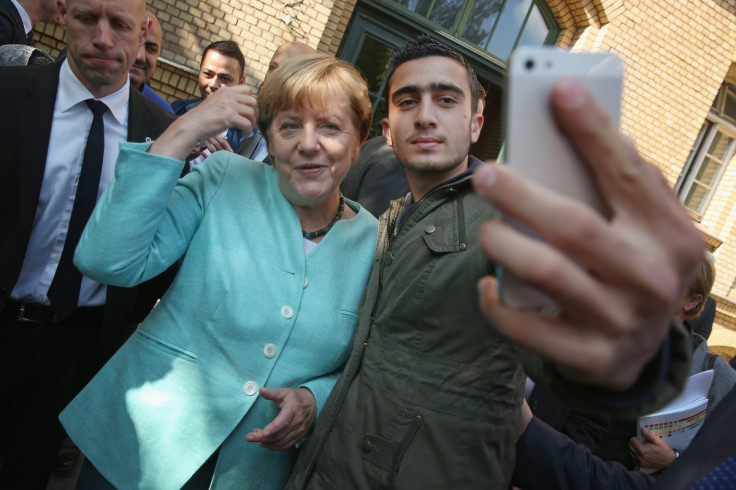Top German companies take on just 200 migrants between them

The 30 companies which make up DAX, Germany's most important stock exchange, have employed just 200 of the estimated 1.1m migrants who have entered the country, it has been revealed. Only one of these firms, the property company Vonovia, has taken on migrants as permanent members of staff, according to a new study, which aims to show that integrating new arrivals into German life has proved harder than expected.
Beiersdorf, a skin-care company, is reported to have hired some refugees as temporary staff, and certain others have recruited trainees and taken on interns. The survey, organised by the magazine Report Mainz, highlighted migrants' lack of language skills as a major contributing factor to the problem.
"Integrating refugees into the German labour market will be a big challenge," Ingo Kramer, president of the Confederation of German Employers' Associations, said. "The companies are doing what they can at the moment, which is to integrate the refugees who speak German. The low number of placements is due to the knowledge of German."
Car giant Daimler blamed the age of applicants after statistics showed that it took just two migrants on a vocational course out of the 40 who took part in an intern programme it ran.
And Deutsche Telekom, which runs the nation's telephone network, took on just 35 immigrants as interns despite opening 100 positions and receiving 350 applicants for 100 internships but took on only 35. It blamed a lack of university education, which is considered vital even for interns in Germany.
Asylum seekers are not allowed to work in Germany while being processed, but most Syrians have been granted temporary asylum to help them into work. The Federal Office for Migration and Refugees then pays for immigrants to take 600 hours of language lessons over six months, with another 300 provided in case candidates are struggling.
Accommodation is paid for while migrants are seeking asylum, and they are also provided with subsidised food. Their rent is also covered while they look for work once their application has been successful.
© Copyright IBTimes 2025. All rights reserved.






















